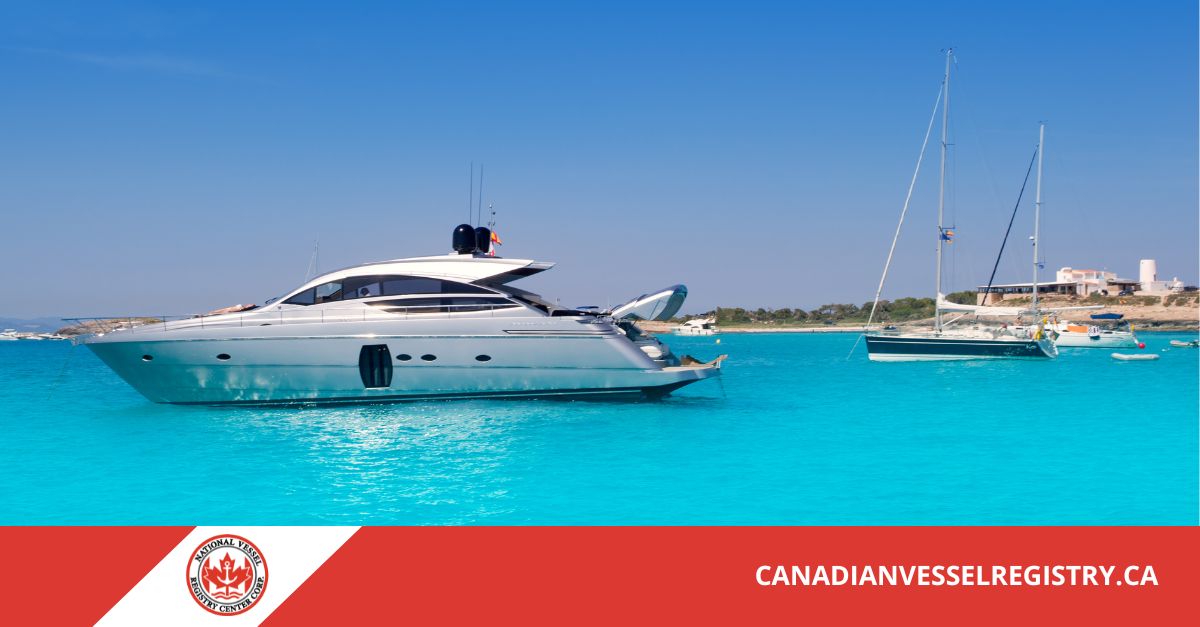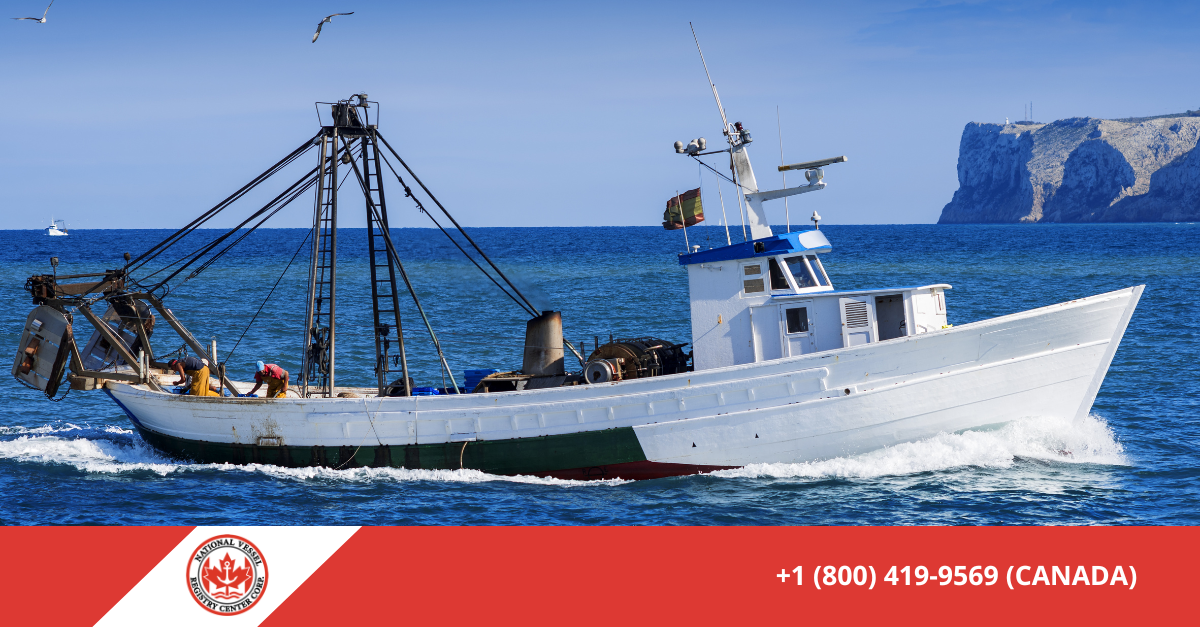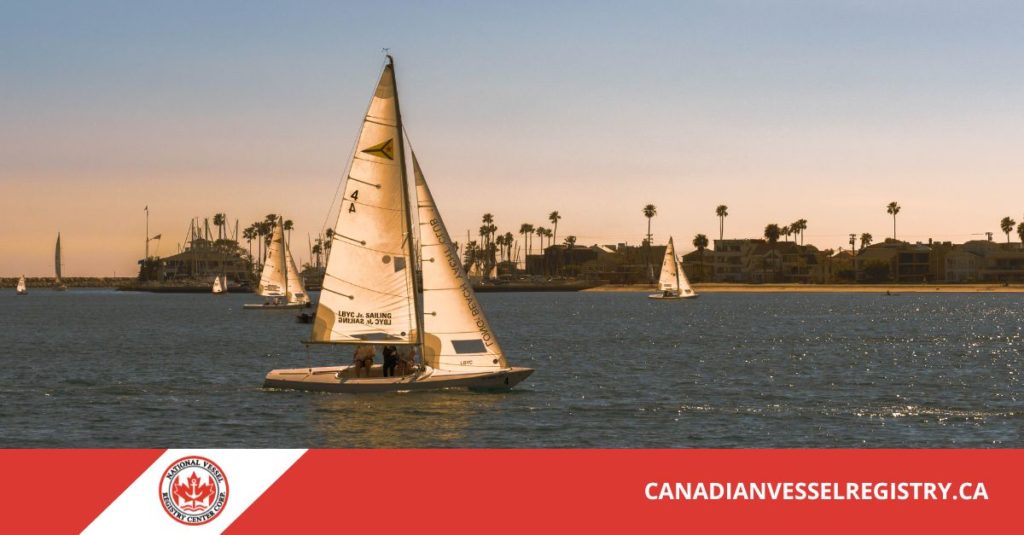The term “commercial” in the context of Canadian boat documentation means that the vessel is being used in a business capacity—typically to earn income, carry goods or passengers for hire, or support business operations. Under Canadian boat registration requirements, as soon as your vessel is used for profit-driven activities, Transport Canada treats it as a commercial vessel and it must be registered accordingly.

Our service helps boat owners identify when their vessel qualifies as commercial and supports them in completing the proper documentation, from selecting the right registry to filing required forms through our secure digital platform.
Understanding What Makes a Vessel Commercial or Recreational
A vessel is considered recreational if it is used privately, without payment, for leisure or travel. But when it shifts into any form of income generation—however limited or indirect—it becomes a commercial vessel. Situations that bring about this classification include:
- carrying paying passengers, including tours or charters
• transporting cargo for remuneration
• supporting commercial operations, even with employees or clients aboard
When any form of compensation is involved, Transport Canada classifies the vessel as commercial. In such cases, Canada boat registration requirements must be met.
What Canadian Boat Registration Is Required for Commercial Vessels?
Commercial vessels that are powered by an engine of 10 horsepower (7.5 kW) or more must be registered through Transport Canada. There are two registration tracks:
- a vessel under 15 gross tonnage using it commercially must go into the Small Vessel Register
• vessels over 15 gross tonnage, or those needing a reserved name or marine mortgage, must be entered into the Canadian Register of Vessels (also known as the Large Vessel Register)
We guide our clients in determining the correct registry, completing required tonnage measurements, and preparing supporting documentation for submission.
The Term “Commercial” Under Transport Canada
Transport Canada defines a commercial vessel as a non-pleasure craft operated for profit, often carrying passengers or goods for hire. The regulations clarify that even government-operated vessels fall under this category when performing business-like activities.
This means that vessels offering tourism experiences, fishing charters, water taxis, freight services, or employee transport are all treated as commercial. Understanding this helps clarify when Canada boat registration becomes mandatory.
What Qualifies as Commercial Use?
Commercial classification is triggered by activities like:
- selling tickets or charging for tours
• accepting barter or service exchanges
• transporting paying passengers even on a one-off basis
Indirect forms of compensation may still make a vessel commercial. Our team helps evaluate your use of the vessel and ensures clarity in your documentation before proceeding with registration.

Why Proper Canadian Boat Documentation Classification Matters
Misclassifying a vessel can have real consequences. Operating as a pleasure craft when doing commercial work can lead to:
- enforcement action from Transport Canada
• fines or penalties
• voided insurance in the event of a claim
• increased liability if accidents occur
Using our service ensures your vessel is correctly classified and registered, minimizing risk and enabling safe, compliant operations.
Which Vessels Must Be Registered as Commercial?
If your vessel is used commercially and powered by at least 10 hp, Transport Canada requires it to be registered in one of two registers:
- Small Vessel Register: for commercial vessels under 15 gross tons
• Canadian Register of Vessels: for larger vessels, those requiring a mortgage, name reservation, or international operation
Owners who want the legal benefits of registration—even for pleasure craft—can register voluntarily through the Large Vessel Register.
Operational Differences Between Commercial and Recreational Vessels
Commercial vessels also have additional responsibilities beyond registration, such as:
- regular inspections
• certified safety equipment
• qualified crew
• recordkeeping and compliance procedures
These regulatory obligations are laid out under Canadian marine regulation SOR‑2007‑126. Registered owners must comply with these rules to remain in good standing.
How We Support You Through the Canadian Boat Documentation Process
Our platform provides services tailored to both recreational and commercial vessel owners:
- evaluating whether your vessel’s use qualifies as commercial
• preparing and submitting registration applications
• name reservation and tonnage measurement support
• ongoing status tracking
• transfers of ownership, updates, or vessel modifications
We hold your hand through each step, making Canada boat registration more manageable—whether you’re filing for the Small Vessel Register or the Canadian Register of Vessels.
When to Reclassify or Update Your Vessel’s Status
If your vessel’s usage changes—such as starting a charter business, transporting cargo for hire, or carrying clients—you must update your documentation. Continuing to operate under a Pleasure Craft Licence while engaging in commercial activity exposes you to compliance risks.
We assist with smoothly transitioning your vessels between registration classes and help submit accurate updates to reflect the new operational use.
The Importance of Legal Ownership and Port of Registry
Registering a commercial vessel also locks in legal ownership via the Canadian registry system. Unlike a Pleasure Craft Licence, registration provides:
- an official certificate of registry
• a unique vessel number and port of registry
• proof of ownership, useful for sales, financing, or disputes
We provide access to all required forms, from initial registration to duplicate certificates and change of address updates—all handled online through our service.
What Boat Owners Often Overlook
Everyone assumes only large ferries or cargo ships qualify as commercial, but many smaller operators also need registration, including:
- small charter boats
• vessels regularly transporting workers or clients
• boats supporting tourism or leisure activities for compensation
If your vessel falls under this type of commercial use, we can help you determine which registration applies and get forms submitted correctly.
Other Canadian Boat Documentation Forms Available via Our Service
We offer access to a full range of Transport Canada forms, including:
- transfer of ownership
• duplicate certificate requests
• deletion requests
• bareboat charter registry applications
These allow our clients to manage every aspect of their vessel documentation securely via our online portal.
Staying Compliant With Canadian Boat Documentation Rules
Proper registration is the first step, but staying compliant also requires following safety and operational regulations. Our service lets you reference and access guidelines under for safety standards, tonnage, and vessel use.
By choosing to register your vessel the right way from the start, you reduce risk and ensure you’re covered—legally and operationally.
Let Us Help You Navigate Canadian Boat Documentation
Whether you operate a pleasure craft or a commercial vessel, understanding what “commercial” means and how it applies under Canada boat registration rules is essential. We’re here to guide you from initial evaluation through full registration and beyond—ensuring your vessel operates legally, safely, and confidently on Canadian waters.
Start the process today. Use our service to clarify your vessel’s classification, access required forms, and complete your Transport Canada documentation with ease.

